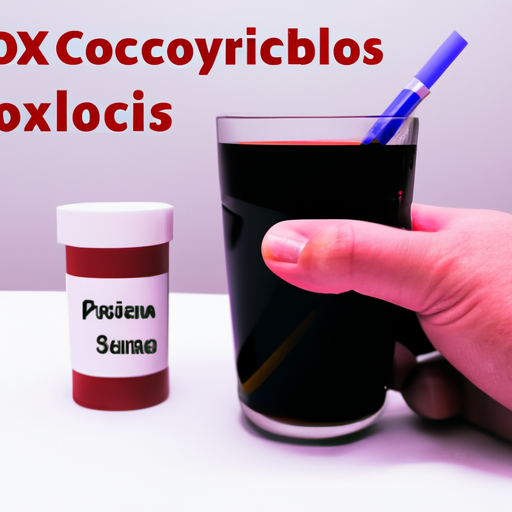Imagine your liver as a superhero, tirelessly working behind the scenes to keep your body functioning at its best. It filters toxins, produces bile, and metabolizes nutrients, playing a crucial role in your overall well-being.
But just like any superhero, your liver needs support to stay strong and healthy. That’s where turmeric comes in. Think of turmeric as your liver’s sidekick, providing a powerful boost to its natural detoxification processes. This golden spice contains an active compound called curcumin, which has been extensively studied for its potential benefits on liver health.
But how much turmeric should you consume to reap these benefits? In this article, we’ll dive into the research and explore the recommended dosage of turmeric for liver health.
Get ready to unlock the full potential of your liver and enhance your overall vitality with the help of turmeric.
Key Takeaways
- Turmeric, specifically its active compound curcumin, has potential benefits for liver health.
- Turmeric can protect the liver against damage from toxins, alcohol, and medications.
- Curcumin stimulates bile production and aids in digestion and fat absorption.
- The recommended dosage of turmeric extract containing 95% curcuminoids for liver health is 500-2,000 milligrams per day.
The Importance of Liver Health
Did you know that taking care of your liver is crucial for maintaining overall health? Your liver plays a vital role in detoxifying harmful substances, producing bile for digestion, and storing essential vitamins and minerals. Poor liver health can lead to a range of health issues, including fatigue, jaundice, and even liver failure.
To keep your liver functioning optimally, it’s important to adopt a healthy lifestyle that includes regular exercise, a balanced diet, and limited alcohol consumption. Additionally, certain natural remedies, like turmeric, have shown promise in supporting liver health. Turmeric contains a powerful compound called curcumin, which has antioxidant and anti-inflammatory properties that may protect the liver from damage.
Understanding the active compound in turmeric is essential in harnessing its potential benefits for liver health.
Understanding the Active Compound in Turmeric
The active compound in turmeric is like a powerful warrior, fighting to protect our body. This compound is called curcumin, and it’s responsible for many of the health benefits associated with turmeric.
Curcumin has been extensively studied for its potential effects on liver health. Research suggests that curcumin may help reduce liver inflammation, prevent liver damage caused by toxins, and even aid in the regeneration of liver cells. It’s believed to work by suppressing the activity of certain enzymes and molecules that contribute to liver damage and inflammation.
However, it’s important to note that the bioavailability of curcumin is low, meaning that the body has difficulty absorbing and utilizing it. Therefore, it may be necessary to consume turmeric with other ingredients, such as black pepper, which can enhance its absorption.
In the next section, we’ll explore the research on turmeric’s effects on liver health.
Research on Turmeric’s Effects on Liver Health
Extensive research has uncovered the impressive potential of turmeric in promoting a healthy and resilient liver. Studies have shown that the active compound in turmeric, known as curcumin, possesses powerful antioxidant and anti-inflammatory properties that can benefit liver health.
Curcumin has been found to protect the liver against damage caused by toxins, alcohol, and certain medications. It can also help reduce liver inflammation and prevent the accumulation of fat in the liver, which can lead to conditions like fatty liver disease.
Additionally, curcumin has been shown to stimulate the production of bile, which aids in the digestion and absorption of fats. These findings suggest that incorporating turmeric into your diet may support overall liver function and protect against liver diseases.
Moving forward, let’s explore the recommended dosage of turmeric for liver health.
Recommended Dosage of Turmeric for Liver Health
To ensure optimal benefits for your liver, it’s important to incorporate turmeric into your daily routine with the recommended dosage, allowing you to experience the extraordinary impact it can have on your overall well-being and safeguarding your body against potential harm.
Research suggests that a daily dosage of 500-2,000 milligrams of turmeric extract containing 95% curcuminoids is effective for liver health. However, it’s crucial to consult with your healthcare provider before starting any new supplement regimen, as individual needs may vary. Factors such as your overall health, existing medical conditions, and medications you may be taking should be taken into consideration. This ensures that you receive the appropriate dosage and minimize the risk of any potential interactions.
Taking these factors into account will help you make informed decisions about incorporating turmeric into your daily routine and optimizing its benefits for your liver health.
Factors to Consider When Taking Turmeric Supplements
When considering incorporating turmeric supplements into your routine, it’s important to take into account various factors such as your overall well-being, existing medical conditions, and any medications you may be taking. Here are three important factors to consider:
-
Bioavailability: Turmeric supplements may have varying levels of bioavailability, meaning the body’s ability to absorb and utilize the active compounds. Look for supplements that contain black pepper or piperine, as these can enhance absorption.
-
Dosage: The appropriate dosage of turmeric supplements can vary depending on individual needs. It’s best to consult with a healthcare professional to determine the right dosage for you.
-
Quality: Ensure that you choose a reputable brand that undergoes third-party testing to guarantee the purity and potency of their products.
Considering these factors will help you make informed decisions regarding turmeric supplementation for liver health. Now, let’s explore other ways to support liver health.
Other Ways to Support Liver Health
One easy way to give your liver some love is by choosing a variety of colorful fruits and vegetables that are packed with nutrients. These foods contain antioxidants, vitamins, and minerals that can support liver health. Some examples include leafy greens like spinach and kale, berries, citrus fruits, and cruciferous vegetables like broccoli and cauliflower.
Additionally, incorporating healthy fats into your diet, such as avocados, olive oil, and nuts, can also benefit your liver. Regular exercise and staying hydrated are important factors as well. By adopting these lifestyle habits, you can provide your liver with the necessary support it needs to function optimally.
Transitioning into the next section, incorporating turmeric into a healthy lifestyle can further enhance liver health.
Conclusion: Incorporating Turmeric into a Healthy Lifestyle
Incorporating turmeric into a healthy lifestyle can be a game-changer for supporting optimal liver function and overall well-being. Studies have shown that this golden spice has been linked to a 65% reduction in liver damage. To start incorporating turmeric into your daily routine, here are three practical tips:
-
Add turmeric to your meals: Sprinkle turmeric powder onto your favorite dishes, such as roasted vegetables, soups, or stir-fries. This will not only enhance the flavor but also provide the liver-protective benefits of turmeric.
-
Make turmeric tea: Brew a cup of turmeric tea by combining hot water, turmeric powder, a squeeze of lemon, and a dash of honey. Enjoy this soothing drink daily to reap the liver-boosting effects.
-
Consider turmeric supplements: If you struggle to incorporate turmeric into your diet, you can opt for turmeric supplements. Look for standardized extracts that contain curcumin, the active compound in turmeric responsible for its health benefits.
By following these simple steps, you can easily incorporate turmeric into your healthy lifestyle and support your liver health.
Frequently Asked Questions
Are there any potential side effects of taking turmeric for liver health?
There are potential side effects of taking turmeric for liver health, such as gastrointestinal issues, allergic reactions, and increased bleeding risk. It’s important to consult with a healthcare professional before starting any new supplement regimen.
Can turmeric be used as a substitute for medical treatments for liver conditions?
Turmeric cannot be used as a substitute for medical treatments for liver conditions. While it may have some benefits for liver health, it is important to consult with a healthcare professional for proper diagnosis and treatment.
Is there a recommended duration for using turmeric for liver health?
There is no specific recommended duration for using turmeric for liver health. However, it is generally safe to consume turmeric as part of a balanced diet and may provide benefits when used regularly.
Can turmeric supplements interact with other medications or supplements?
Turmeric supplements may interact with certain medications and supplements. It’s important to consult with a healthcare professional before starting turmeric supplements to ensure they won’t interfere with your current medications or supplements.
Are there any specific population groups who should avoid or be cautious when taking turmeric for liver health?
There are specific population groups who should be cautious when taking turmeric for liver health. These include pregnant women, people with gallbladder problems, and those taking certain medications like blood thinners.
Conclusion
In conclusion, incorporating turmeric into a healthy lifestyle can have significant benefits for liver health. Research has shown that the active compound in turmeric, curcumin, may help protect the liver and support its natural detoxification process.
While there’s no exact recommended dosage, it’s generally safe to consume up to 1 teaspoon of turmeric powder daily. However, it’s important to consult with a healthcare professional before starting any new supplement regimen.
By considering factors such as purity, bioavailability, and potential interactions, we can ensure that turmeric supplementation is effective and safe for liver health. So why wait? Start adding turmeric to your daily routine and give your liver the support it deserves!










